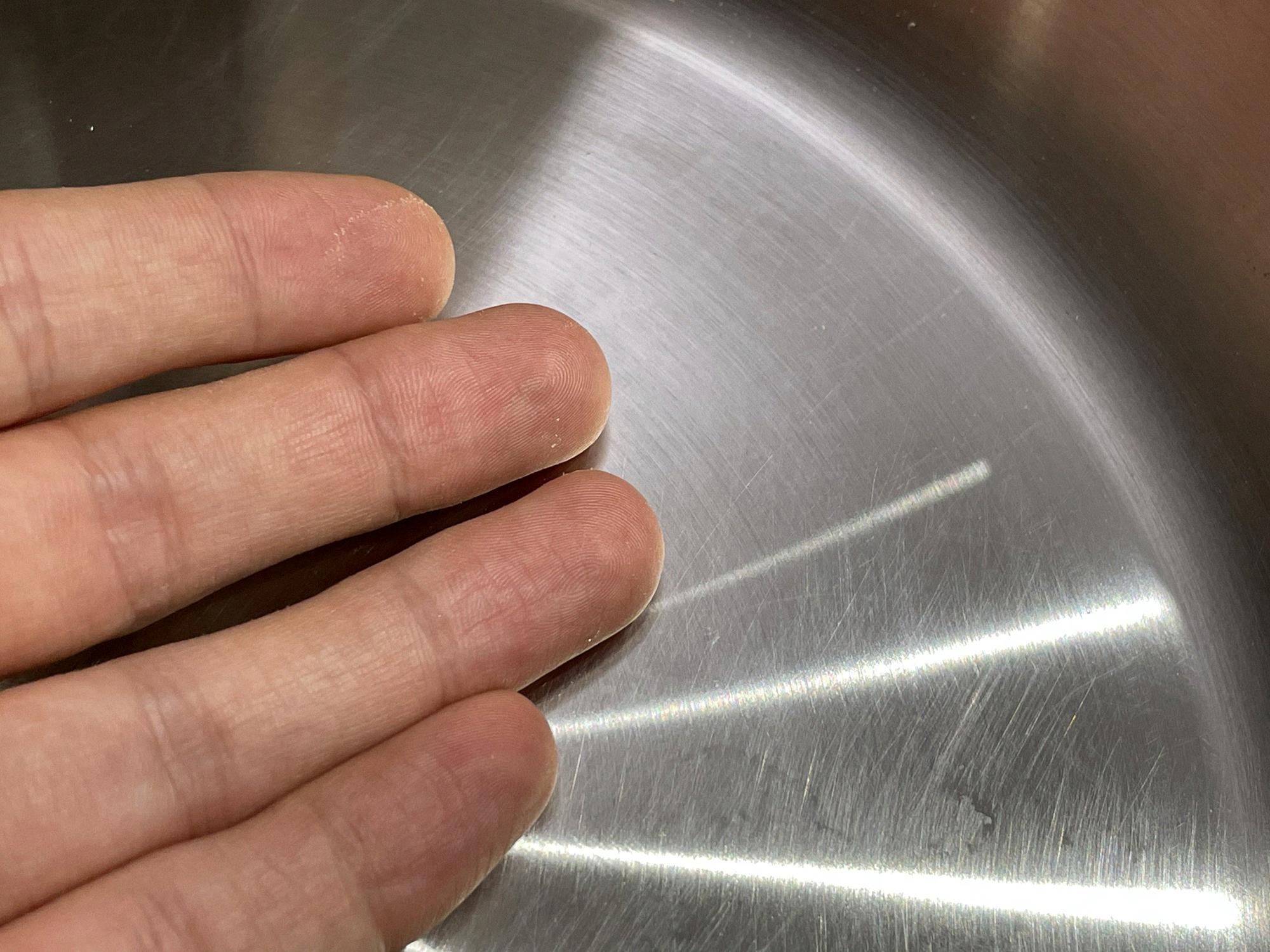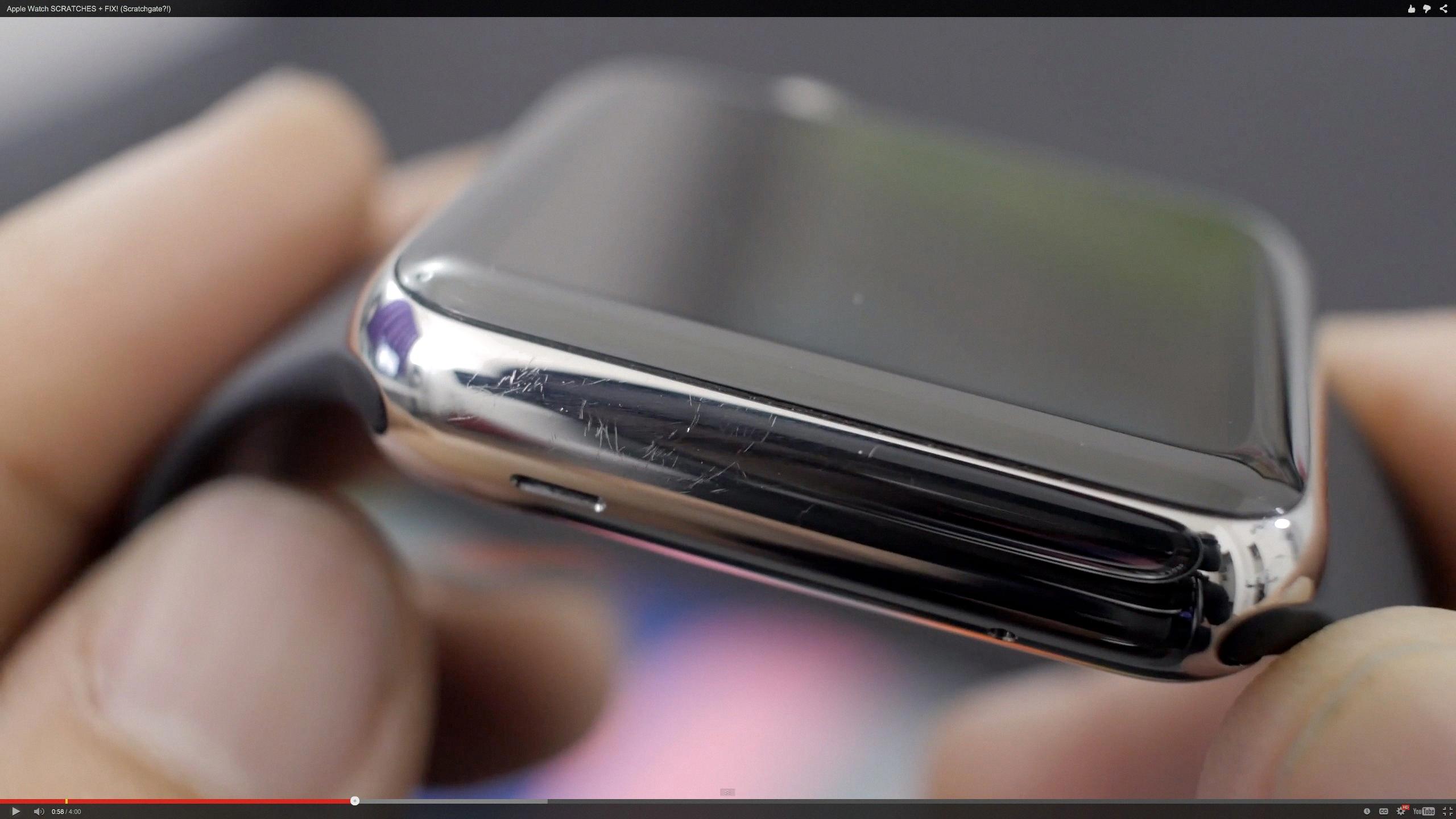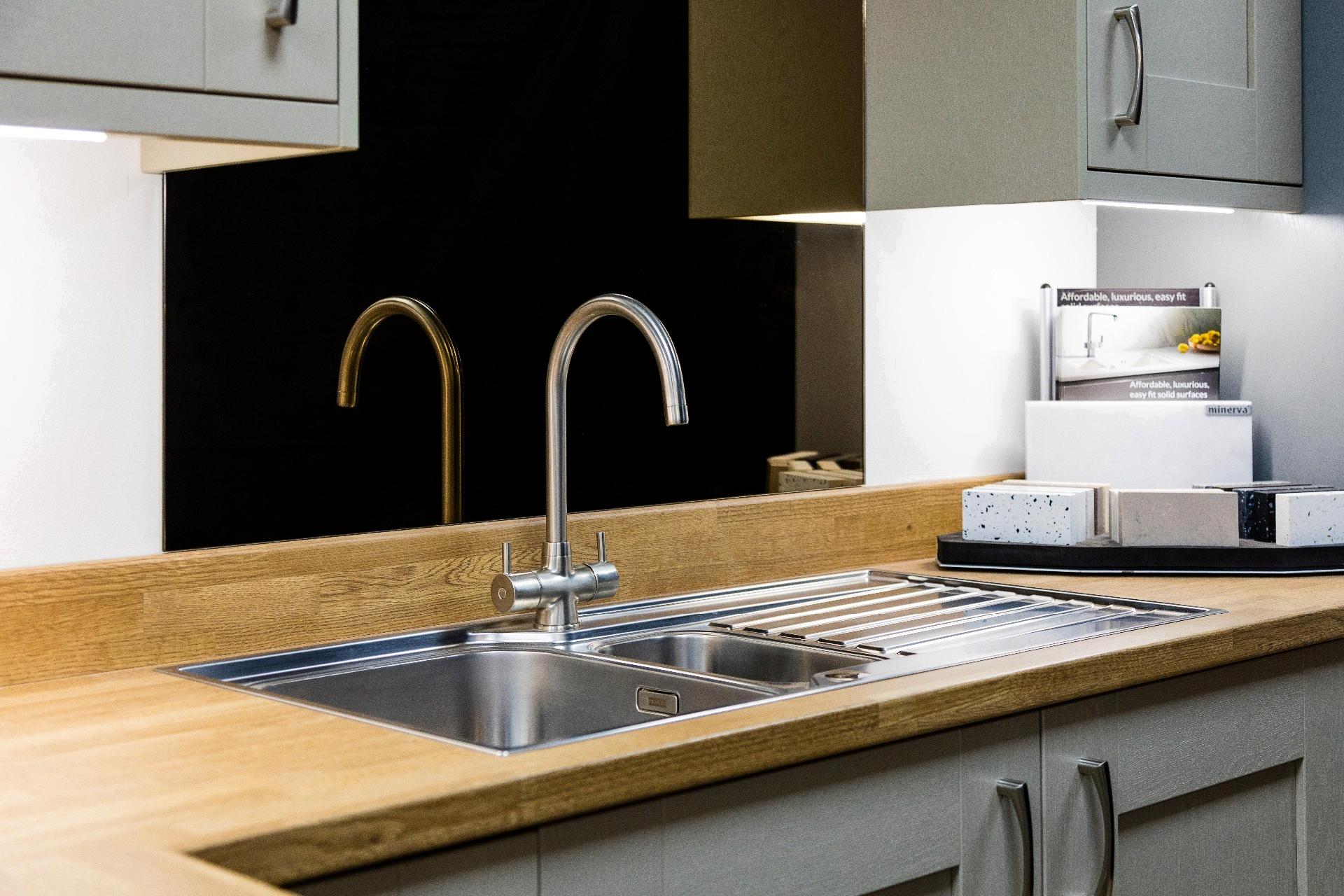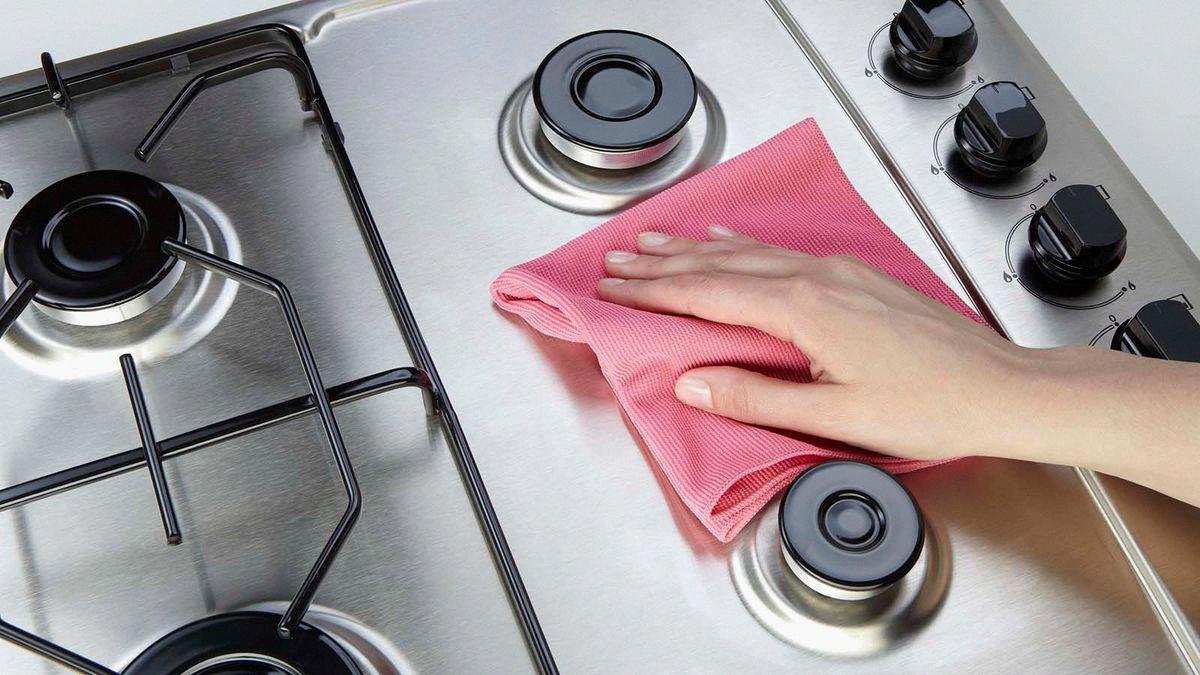Stainless steel is a popular material used in many household appliances and fixtures, from refrigerators and dishwashers to faucets and sinks. It’s known for its sleek appearance, durability, and resistance to rust and corrosion. However, like any material, stainless steel is not indestructible, and it can be susceptible to scratches over time.
So, does steel scratch? The answer is yes, stainless steel can scratch. While it rates at a 5 out of 10 on the Mohs Scale of Hardness, making it tougher to scratch than some other metals like silver and gold, it is not impervious to scratches and dents.
There are several factors that can contribute to scratches on stainless steel surfaces. One of the most common causes is simply regular use. Over time, small scratches can accumulate from day-to-day wear and tear, such as sliding pots and pans across a stainless steel stove top or countertop. Another cause of scratches is improper cleaning or maintenance. Using abrasive cleaners or scrubbing with a rough sponge or cloth can damage the surface of stainless steel and leave behind scratches.
To prevent scratches on stainless steel surfaces, it’s important to use proper cleaning techniques and to be mindful of how you use and handle your appliances and fixtures. Here are some tips for keeping your stainless steel looking great:
– Clean with the grain: Whenever you clean, wipe, or polish a stainless steel surface, always do so with the grain, not against it. This will help to maintain the surface’s shine and protect it from scratches.
– Use gentle cleansers: Avoid using harsh or abrasive cleaners on stainless steel. Instead, opt for mild detergents or specialized stainless steel cleaners that are designed to be gentle on the surface.
– Be careful with heavy or sharp objects: When using heavy or sharp objects on a stainless steel surface, such as a meat cleaver or cast iron skillet, be sure to use a cutting board or trivet to protect the surface from scratches and dents.
– Consider protective film: For appliances or fixtures that are particularly prone to scratches, such as a refrigerator or dishwasher, you may want to consider applying a protective film to the surface to help prevent damage.
While stainless steel is a durable and resistant material, it is not immune to scratches or dents. By using proper cleaning techniques, being mindful of how you use and handle your appliances and fixtures, and taking steps to protect vulnerable surfaces, you can help to keep your stainless steel looking great for years to come.
Can Steel Be Easily Scratched?
Steel, like any other material, can scratch depending on the hardness and sharpness of the object it comes into contact with. However, the extent to which it scratches will depend on the type of steel and its finish. For instance, stainless steel is more resistant to scratches than regular steel due to the addition of chromium, which forms a thin protective layer on the surface. However, even stainless steel can scratch if it comes into contact with abrasive or sharp objects or if it is cleaned with harsh chemicals or scrubbers. It is, therefore, essential to take good care of steel products to avoid unnecessary damage and maintain ther appearance.

Source: reddit.com
Preventing Steel from Scratching
To prevent stainless steel from scratching, it’s essential to follow some simple practices. Firstly, avoid using harsh or abrasive cleaning tools and products such as steel wool, scrubbing pads, or sandpaper that can leave permanent scratches on the surface. Instead, use a soft cloth or sponge and mild soap or cleaning solution to wipe the steel gently.
Secondly, always clean and wipe the steel with the grain, not against it, to prevent scratches and preserve the surface’s shine. Thirdly, avoid using acidic or harsh chemicals that can corrode or damage the steel. Instead, use specialized stainless steel cleaners or homemade solutions like vinegar and water or baking soda and water to clean the steel.
Lastly, it’s advisable to use protective covers or pads on the steel surface to prevent scratches from heavy or sharp objects. For example, you can use rubber or felt pads under appliances, cutting boards, or decorative items to safeguard the steel from scratches. By following tese suggestions, you can keep your steel surfaces looking new and prevent scratches.
Scratch-Resistant Steel: What Is It?
Stainless steel is a highly scratch-resistant material. It has a rating of 5 out of 10 on the Mohs Scale of Hardness, whch means that it is much tougher than other metals like silver and gold, making it less prone to scratches, dents, and warping. The reason for this is that stainless steel contains chromium, which forms a thin layer of chromium oxide on the surface of the metal when exposed to oxygen. This layer protects the steel from corrosion and, at the same time, makes it highly scratch-resistant. Stainless steel is widely used in various industries, including the automotive, aerospace, and construction sectors, as well as in household appliances and kitchenware. Its durability and resistance to scratches make it an ideal choice for products that are subject to wear and tear.
Can Metal Be Scratched?
Absolutely, metal can be scratched. In fact, it is a common misconception that certain metals are scratch-resistant. However, even the hardest metals can be scratched or dented under the right circumstances. The scratch resistance of a metal is determined by its hardness and the force applied to it. For example, a metal like copper is relatively soft and can be easily scratched by a harder material like steel. On the oter hand, steel is harder and can resist scratches from copper.
It’s important to note that scratches can occur on metal surfaces due to everyday use or accidental impacts. Even with proper care and maintenance, scratches can still occur over time. As a result, it’s important to choose the right type of metal for your specific application. For instance, if you are looking for a surface that won’t scratch easily, you may want to consider materials like stainless steel or titanium, which are known for their durability and scratch resistance.
While metal is a durable and long-lasting material, it is not immune to scratches. Whether it’s through everyday wear and tear or accidental impacts, metal surfaces can be scratched or dented. It’s important to choose the right type of metal for your specific application and to take proper care of it to minimize the risk of scratches over time.
Removing Scratches From Steel
It is posible to remove scratches from steel, although the method you use will depend on the depth and severity of the scratch. For light scratches and scuffs, you can usually buff them out with a scouring pad or scrubbing sponge and some cooking oil. Simply apply a small amount of oil to the pad or sponge and rub it into the scratch, using circular motions. This should help to blend the scratch into the surrounding steel and make it less noticeable.
For deeper scratches, you may need to use a specialized kit designed for removing scratches from steel, such as the Rejuvenate Stainless Steel Scratch Eraser Kit or Scratch-B-Gone. These kits typically contain a series of abrasive pads or cloths in various grits, along with a polishing compound or cream. You’ll need to follow the instructions carefully, starting with the coarsest grit pad and working your way up to the finest, using the polishing compound to buff the steel to a shine after each step.
It’s worth noting that while you can remove scratches from steel, you may not be able to completely eliminate them if they’re very deep or extensive. In some cases, you may need to live with the scratches or consider replacing the steel surface entirely.

Source: wired.com
Scratch-Proof Metals
When it comes to finding a metal that doesn’t scratch, there are a few options to consider. However, it’s important to note that no metal is completely scratch-proof, as all materials can eventually acquire scratches over time. That being said, there are some metals that are much more resistant to scratches than others.
One such metal is tungsten. Tungsten is an incredibly hard metal that is four times harder than titanium and has the highest scratch resistance of any metal used in jewelry. This makes it an excellent choice for wedding bands or any other piece of jewelry that will be worn frequently and needs to withstand everyday wear and tear.
Another metal that is highly scratch-resistant is platinum. Platinum is also very durable and strong, making it a popular choice for engagement rings and wedding bands. While it’s not as hard as tungsten, platinum is still highly resistant to scratches and will maintain its luster and shine for many years.
Stainless steel is also a great option for those looking for a scratch-resistant metal. While it’s not as hard as tungsten or platinum, stainless steel is still highly durable and resistant to scratches. It’s also a more affordable option than many other metals, making it a popular choice for those on a budget.
While no metal is completely scratch-proof, tungsten, platinum, and stainless steel are all excellent options for those looking for a highly scratch-resistant metal for teir jewelry.
Using Non-Suitable Products on Steel
When it comes to cleaning steel, there are several products that you shuld avoid using, as they can cause damage and discoloration. Firstly, avoid using harsh abrasives, such as sandpaper or scrubbing pads, as they can scratch the surface of the steel. Similarly, scouring powders and steel wool should also be avoided for the same reason.
Secondly, stay away from bleach and other chlorine-based products. They can cause pitting and corrosion on steel surfaces, which can be difficult to repair. Additionally, glass cleaners that contain ammonia, such as Windex, should not be used on steel, as they can cause discoloration and streaking.
Thirdly, tap water, especially if it is hard water, should not be used to clean steel. Hard water contains mineral deposits that can leave behind marks and stains on steel surfaces. Instead, it is recommended to use clean distilled or filtered water.
Lastly, oven cleaners should not be used on steel surfaces, as they are often too harsh and can cause discoloration and damage. Instead, use a mild soap and water solution or a specialized steel cleaner to keep your steel surfaces looking their best.
Maintaining a Shiny Steel Finish
Keeping steel shiny requires regular cleaning and maintenance. Here are some steps you can take to keep your steel shiny:
1. Clean the steel regularly: Use a soft cloth or sponge to clean the steel surface regularly. This will help to remove any dirt, dust, or grime that may have accumulated on the surface.
2. Use a mild cleaning solution: You can use a mild cleaning solution, such as dish soap and warm water, to clean the steel. Avoid using harsh chemicals or abrasive cleaners as they can scratch the surface and damage the finish.
3. Dry the steel thoroughly: After cleaning, make sure to dry the steel thoroughly with a clean, dry cloth. Leaving the steel wet can cuse water spots and streaks to form, which can make the steel look dull.
4. Apply a protective coating: Applying a protective coating, such as wax or oil, can help to protect the steel from oxidation and rust. This will help to keep the steel shiny and looking new for longer.
5. Use a metal polish: If the steel has become tarnished or dull, you can use a metal polish to restore its shine. Apply the polish to the steel surface and buff it with a clean cloth until it shines.
By following these simple steps, you can keep your steel shiny and looking new for years to come.
Protecting Steel Without Paint
One effective way to protect steel without paint is by applying oil. Oil not only lubricates metal parts and reduces friction, but it also forms a protective barrier aganst rust. When you apply a coating of oil to the steel, it prevents moisture from reacting with the iron in the metal and causing rust. This process is relatively simple but extremely effective in preventing corrosion. It’s important to note that when applying oil, you should ensure that the surface is clean and dry. Any dirt or moisture left on the surface can prevent the oil from adhering correctly, reducing its effectiveness. Additionally, you should reapply the oil regularly to ensure that the protective barrier remains intact over time. using oil to protect steel without paint is a practical and cost-effective solution to prevent rust and corrosion.

Source: holmewoodinteriors.co.uk
Finding a Scratch-Proof Material
When it comes to scratch-proof materials, thee are two main options: mineral glass and sapphire glass. Mineral glass is a type of tempered glass that is extremely durable and resistant to scratches. It’s commonly used in high-quality watches and eyewear. Sapphire glass, on the other hand, is a synthetic material that is even more scratch-resistant than mineral glass. It’s often used in high-end watches, smartphones, and other electronic devices. Both mineral glass and sapphire glass are excellent options for those looking for scratch-proof materials. However, it’s important to note that while these materials are highly resistant to scratches, they are not completely scratch-proof and can still be damaged under certain conditions.
Which Metal Is Most Prone to Scratching?
Based on our experience with thousands of rings, 18k yellow gold tends to scratch the most among various metals used for making jewelry. This is because 18k yellow gold is softer than other metals and is made up of 75% gold and 25% other metals, which makes it more susceptible to scratches and dings. On the other hand, other metals like palladium and platinum are denser and harder, making them more resistant to scratches. However, it is important to note that scratching is a natural occurrence with any metal and can happen over time due to daily wear and tear.
Materials That Do Not Scratch Easily
Acrylic glass, also known as polymethyl methacrylate (PMMA), is a thermoplastic material that is highly resistant to scratches. Both cast and extruded acrylic glass have a high surface hardness rating, making them incredibly durable and scratch-resistant. This material is often used as a substitute for glass due to its clarity and toughness, and it is commonly used in the production of windows, skylights, and signage. In addition to its scratch-resistant properties, acrylic glass is also highly resistant to UV radiation and weathering, making it a popular choice for outdoor applications. Other materials that are known for ther scratch-resistant properties include sapphire, diamond, and tungsten carbide, but these materials are typically much more expensive and less practical to use in everyday applications.
The Scratch Resistance of Different Metals
All metals can scratch, and it is a natural occurrence due to thir physical properties. The hardness and durability of a metal depend on its composition and structure, and some metals are more resistant to scratches than others. For instance, metals like gold, silver, and copper are relatively soft, and they can scratch easily. On the other hand, metals like titanium, tungsten, and stainless steel are harder and more scratch-resistant. However, even these metals can scratch under certain conditions, such as when they come into contact with harder substances or abrasive materials. Therefore, while some metals may be more scratch-resistant than others, it is essential to take proper care of all metals to minimize the risk of scratches and maintain their appearance and integrity over time.

Source: home.howstuffworks.com
The Permanence of Scratches
Scratches are usually not permanent and they will heal on their own, but the healing time may vary depending on the severity of the scratch. Minor scratches will usually heal wthin a few days to a week, while deeper scratches may take a few weeks. However, if the scratch is deep enough to damage the dermis layer of the skin, it may result in scarring. Scarring occurs when the body produces excess collagen fibers to repair the damaged skin, resulting in a permanent mark. In order to prevent scarring, it is important to keep the wound clean and avoid picking at the scab. If the scratch becomes infected, it may leave a scar even after it has healed. Therefore, it is important to treat any wound properly to avoid infections and potential scarring.
The Causes of Scratches on Stainless Steel
Stainless steel is a popular material for many household items due to its durability, resistance to corrosion, and sleek appearance. However, even stainless steel is not completely scratch-proof. Scratches can occur due to a variety of reasons, such as contact with abrasive materials like steel wool or harsh chemicals, accidental impact with hard objects, or even regular use over time. The manufacturing process of stainless steel also leaves behind brush marks on the surface, known as the grain, wich can make scratches more visible. It’s important to take care when cleaning and handling stainless steel items to minimize the risk of scratches, and to use the correct methods and products for scratch removal to avoid further damage.
Conclusion
Stainless steel, while durable and resistant to rust, is not impervious to scratches. It rates at a 5 out of 10 on the Mohs Scale of Hardness, making it tougher to scratch, dent, or warp than silver and gold. However, any metal can be scratched or dented, so it is important to handle and maintain stainless steel appliances, finishes, and fixtures with care. Always clean, wipe, or polish with the grain, not against it, to protect the surface from scratches, and avoid using abrasive cleaners or scrubbers. By practicing proper maintenance and handling techniques, stainless steel can maintain its sleek appearance and durability for years to come.
